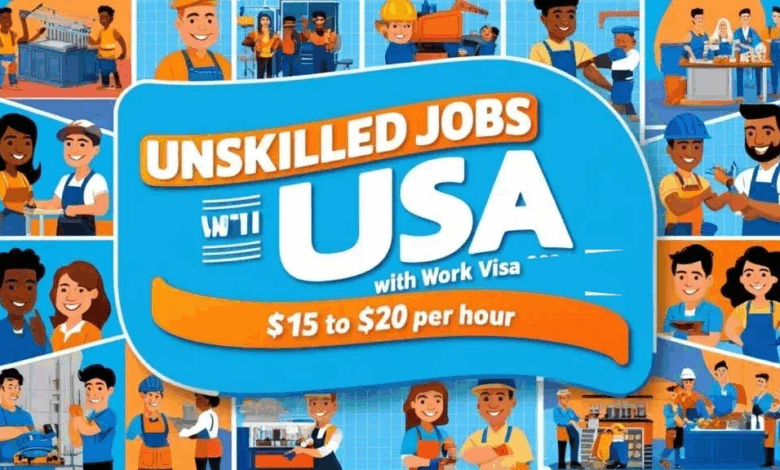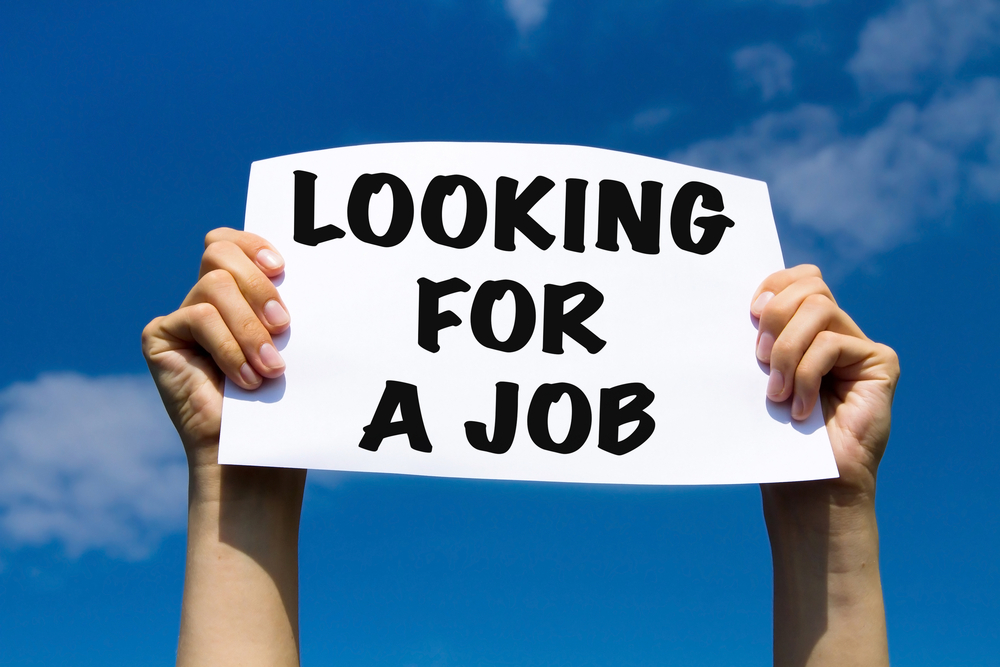Securing “Ordinary” Jobs in the US for Africans That Pay $3000/Month

The United States offers a wealth of opportunities, and for many Africans, the prospect of earning a higher income is a powerful draw. While highly specialized fields often command the highest salaries, it’s absolutely possible to find “ordinary” jobs in America that can bring in around $3,000 USD per month (roughly $36,000 annually), even without advanced degrees or highly specialized skills. The key lies in understanding the job market, visa pathways, and strategic planning.
It’s important to clarify that direct application for a job in the US as an African without a work visa is generally not possible. The primary pathway to working legally in the US is through employer sponsorship for a work visa. This means an American employer must be willing to go through a process to hire you.
Understanding the $3000/Month Goal (and what it means)
A salary of $3,000 per month translates to roughly $18.75 per hour if working a standard 40-hour week. Many “ordinary” or entry-level jobs in the US, particularly in states with higher minimum wages or in sectors with labor shortages, can meet or exceed this hourly rate.
Examples of “Ordinary” Jobs that can reach $3000+/month:
- Caregiving/Home Health Aide: With an aging population, demand for caregivers is high. Experience in caring for the elderly or individuals with disabilities is valuable. Wages can range from $15-$25+ per hour, depending on location and specific duties.
- Warehouse and Logistics: Roles like warehouse associates, forklift operators, and delivery drivers are consistently in demand, especially with the boom in e-commerce. Hourly wages often start around $16-$22+, with opportunities for overtime.
- Hospitality (Hotels, Resorts): Roles such as hotel housekeepers, front desk staff, and kitchen assistants can offer stable employment. In popular tourist destinations, wages can be competitive.
- Cleaning Services/Janitorial: Commercial and residential cleaning services are always needed. Hourly rates can be $15-$25+, with potential for tips in some residential settings.
- Agricultural Workers (Seasonal H-2A Visa): While seasonal, these jobs often include provided housing and competitive hourly wages, making it possible to save significantly. This is one of the more accessible visa pathways for temporary work.
- Construction Laborer: Basic construction jobs, especially in booming urban areas, can pay well. No specialized skills are often needed for entry-level roles, though physical stamina is required.
- Food Service (Cooks, Dishwashers, Some Servers): While often hourly, in some states and higher-end establishments, full-time positions for cooks or dishwashers can reach or exceed this threshold, especially with tips for servers.
The Crucial Step: Securing a Work Visa
This is the most critical and often challenging part of the process. For “ordinary” jobs, the most relevant temporary (non-immigrant) work visas are typically:
-
H-2B Visa (Temporary Non-Agricultural Workers): This visa is for temporary or seasonal non-agricultural jobs where there’s a shortage of US workers. Many of the “ordinary” jobs listed above (hospitality, cleaning, landscaping, some construction, seafood processing, etc.) fall under this category.
- Key Requirement: An American employer must petition for you, demonstrating that they have a temporary need for the work and that there are not enough qualified and willing U.S. workers for the job.
- Process: The employer first applies for a temporary labor certification from the Department of Labor. If approved, they then file Form I-129, Petition for a Nonimmigrant Worker, with USCIS. Once USCIS approves the petition, you can apply for the H-2B visa at a U.S. Embassy or Consulate in your home country.
-
H-2A Visa (Temporary Agricultural Workers): Specifically for temporary or seasonal agricultural work. This visa also requires an employer to petition on your behalf.
- Key Requirement: Similar to H-2B, an employer must prove a temporary need for agricultural workers that cannot be met by US workers. Housing is often provided by the employer.
General Work Visa Application Steps (for H-2A/H-2B):
- Employer Sponsorship is Paramount: You cannot self-petition for these visas. You need a US employer who is willing to sponsor you.
- Labor Certification: The employer must demonstrate to the U.S. Department of Labor that they tried to hire American workers but couldn’t find enough qualified ones.
- Petition Filing (Form I-129): Once labor certification is obtained, the employer files Form I-129 with U.S. Citizenship and Immigration Services (USCIS) on your behalf.
- Visa Application (DS-160): Once the petition is approved by USCIS, you can complete the DS-160 online nonimmigrant visa application form.
- Interview at U.S. Embassy/Consulate: You will attend an interview at the U.S. Embassy or Consulate in your country. You’ll need to demonstrate your eligibility and your intent to return to your home country after your temporary work period.
- Required Documents: Valid passport, DS-160 confirmation page, petition receipt number (Form I-797), passport-sized photos, and potentially proof of ties to your home country (property, family, bank accounts).
Strategies for African Job Seekers:
-
Network and Research Companies that Sponsor:
- Online Job Boards: While direct application is often futile without sponsorship, use sites like Indeed, LinkedIn, and specialized job boards (e.g., those for agriculture or hospitality) to identify companies that have a history of sponsoring H-2A or H-2B visas. Look for job postings that explicitly state “sponsorship available” or target seasonal worker programs.
- Recruitment Agencies: Some agencies specialize in connecting foreign workers with U.S. employers for H-2B or H-2A visas. Be extremely cautious and research any agency thoroughly to avoid scams. Legitimate agencies will not ask you to pay for a job offer or a visa.
- Direct Outreach: If you identify companies that might need workers in these fields, you could try directly contacting their HR departments or hiring managers, explaining your skills and your desire to work under the H-2B/H-2A program, and asking if they sponsor.
-
Highlight Relevant Skills and Experience:
- Even for “ordinary” jobs, emphasize any experience that makes you a valuable candidate: reliability, physical fitness, previous experience in similar roles (e.g., farming, cleaning, customer service), ability to follow instructions, teamwork, and good communication skills.
- A well-structured resume/CV, even if for entry-level roles, can make a difference.
-
Be Aware of Scams:
- Never pay a large sum of money to an individual or agency promising a guaranteed US work visa or job without proper vetting.
- Legitimate visa fees are paid directly to the U.S. government.
- Be wary of job offers that seem too good to be true, or those that don’t come from verified companies.
-
Consider Temporary/Seasonal First:
- For many “ordinary” jobs, the temporary H-2A and H-2B visas are the most realistic entry points. While not permanent residency, they allow you to work legally, earn, and gain experience in the US. Some individuals then explore other immigration pathways once they are in the US.
Earning $3000/Month: Financial Realities
While $3,000 USD per month might sound substantial, it’s crucial to understand the cost of living in the US. Rent, utilities, food, transportation, and health insurance can significantly impact your net income. Researching the cost of living in the specific state or city where you might work is essential. However, in many states, $3,000 gross per month is a viable living wage for an individual, allowing for savings if managed well.
Working in the US as an African for an “ordinary” job is not a simple walk-in, but with perseverance, a focus on the correct visa categories, and a cautious approach to finding legitimate employer sponsors, it is an achievable goal for many.
Source: http://thepressradio.com




